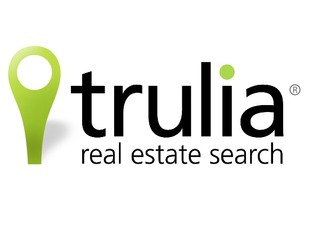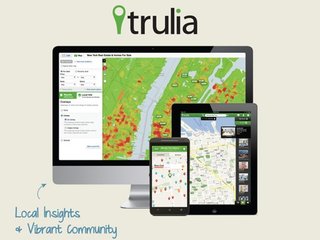Digital health funding declines for the third year in a row
AI-enabled digital health startups raised $3.7B, 37% of total funding for the sector
Read more...
After Facebook’s IPO, it looked like it may be a down year for the IPO market. Now, after a string of successes, it looks like the market has bounced back.
Real estate marketplace Trulia debuted on the Nasdaq Thursday, trading under the symbol ‘TRLA’. Shares opened at $22.10, 30% above the $17 price that Trulia had set on Wednesday, and well above the previous price of $14-16, set earlier this month.
With the six million shares it registered, Trulia raised $102 million in the offering. Underwriters in the companyare JPMorgan Chase, Deutsche Bank, RBC Capital Markets, Needham & Company, and William Blair & Company.
At the time of this writing, Trulia’s stock is trading at 24.22, up 42.47% above the IPO price.
Trulia originally filed a confidential IPO back in July, using a provision in the JOBS Act, passed earlier this year by Congress. Under the Act, companies that earn less than $1 billion in revenue are allowed to sidestep regulations and file so that the public cannot access their documents. The bill created a new category for companies like Trulia, which are now known as “emerging growth companies.” They are allowed to withdraw their IPOs without having to divulge private information.
In June, Trulia had 22 million unique monthly visitors, more than four times the five million visitors it had in June 2009. The site’s has also seen subscribers increase to 21,544 from 2,400 in 2009.
In addition, te company has seen its revenue double every year since 2009. In 2011, the company saw revenues of $38.5 million, up 49% from $19.8 million in 2010. In the just the first half of 2012 alone, Trulia already generated $29 million in revenue.
Despite all of these gains, Trulia is still not profitable. While revenue has increased, so have the company’s net losses. In 2009, Trulia posted a net loss of $7 million. That number went down to $3.8 million in 2010, but rose again to $6.1 million in 2011. Between January and June 2012, Trulia already posted a net loss of $7.6 million.
The reason the company remains in the red is its spending on sales and marketing, which accounted for $17.7 million in 2011. Trulia also spends a good amount of money on technology and development accounting for $14.6 million last year. These two areas alone accounted for $32.3 million of Trulia’s $38.5 million 2011 revenue.
Pete Flint and Sami Inkinen founded the San Francisco-based real estate site, which provides tools and information for homebuyers, in 2006. The company has raised over $33 million, including raising a $10 million Series C in 2007, led by Sequoia Capital, as well as previous investors Accel Partners and Fayez Sarofim & Co., and raising a $15 million Series D in 2008, from Sequoia Capital and Accel Partners.
To gauge whether Trulia can sustain its current success, the most recent example to look at would be its competitor Zillow.
Zillow went public a little over a year ago, at a set price of $20. It saw its stock triple to $60 right out of the gate, and then fall back to end the day at $35.77. Today, Zillow trades at $46.25, more than double its IPO price, suggesting the public market may be receptive to other real-estate offerings, like Trulia.
There is one giant indication that Zillow sees Trulia as a true competitor: Zillow has sued the company for patent infringement. Now that Trulia is a public company, and is so far doing pretty well, the tension between these two can only go up.
Other recent successful IPOs
Trulia’s successful debut follows a number of other IPOs that signal that the technology sector has rebounded from the weak Facebook IPO in May, which had scared off numerous companies from going public.
After SaaS IT management company Servicenow raised over $209 million in June, debuting, 37% above its IPO price of $18, two other high profile companies debuted in July: travel search engine Kayak and enterprise firewall and security firm Palo Alto Networks.
Kayak shares closed at $33.18, while Palo Alto Networks closed at $53.13. Both companies were up 27% in their debuts.
Palo Alto Networks is currently trading at $65.55 while Kayak is sitting at 32.63, and ServiceNow is trading at $38.07. All three are well above IPO price.
(Image source: https://www.trulia.com/)
AI-enabled digital health startups raised $3.7B, 37% of total funding for the sector
Read more...OXcan combines proteomics and artificial intelligence for early detection
Read more...Nearly $265B in claims are denied every year because of the way they're coded
Read more...
Joined Vator on
Sami Inkinen is the CEO & Founder of San Francisco-based Virta Health. Previously, Sami was a co-founder, COO and President of Trulia. He is an investor in companies advancing human health and performance as an angel investor and at Obvious Ventures.


